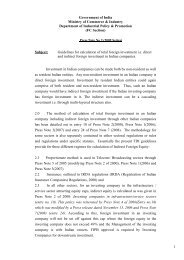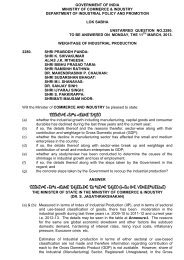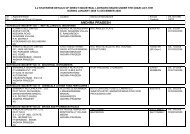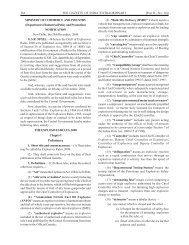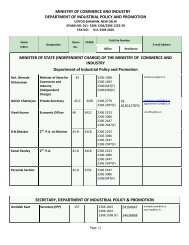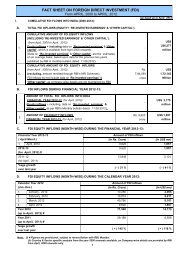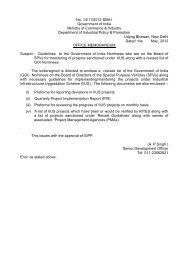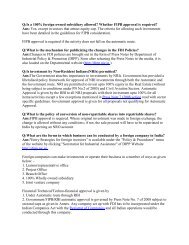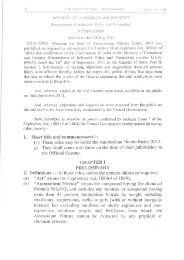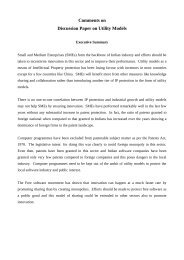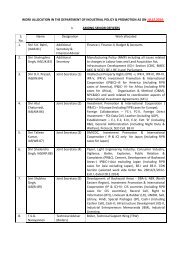GAS CYLINDERS RULES, 19811 - Department Of Industrial Policy ...
GAS CYLINDERS RULES, 19811 - Department Of Industrial Policy ...
GAS CYLINDERS RULES, 19811 - Department Of Industrial Policy ...
You also want an ePaper? Increase the reach of your titles
YUMPU automatically turns print PDFs into web optimized ePapers that Google loves.
(xxxviii)“test pressure” means the internal pressure required for the hydrostatic test or<br />
hydrostatic stretch test of the cylinder, as follows:-<br />
(1) For permanent and high pressure liquefiable gases, it should be calculated<br />
from the following:<br />
where<br />
200. t. Re<br />
Ph = -----------------<br />
1.25 (Do-t)<br />
Ph = Test pressure in kgf/cm 2<br />
Do= Outside diameter of the cylinder in mm.<br />
t = Minimum calculated wall thickness of the cylinder shell in mm.<br />
Re= Minimum specified yield strength of the material of cylinder in kgf/mm 2 , it<br />
is limited to 75 per cent of the minimum value of the tensile strength in the case<br />
of normalised cylinder and 85 per cent of the minimum value of the tensile<br />
strength for quenched and tempered cylinder, provided that the value of test<br />
pressure shall not exceed 80 per cent of the yield strength.<br />
(2) For low pressure liquefiable gas - One and a half times the saturated vapour<br />
pressure of the gas at 65 0 C or as specified in IS:8867, whichever is higher;<br />
(xxxix) “transport” means the moving of a cylinder filled with any compressed gas from<br />
one place to another;<br />
(xxxx) “water capacity” means the volume of water in litres, a cylinder will hold at<br />
15 0 C.;<br />
(xxxxi)“working pressure for low pressure liquefiable gas” means the saturated vapour<br />
pressure at 65 0 C;<br />
Explanation.- The values of saturated vapour pressure of different gases are<br />
specified in IS:3710;<br />
(xxxxii) “working pressure for permanent gas” means the internal pressure of the gas in<br />
the cylinder at a temperature of 15 0 C;<br />
(xxxxiii)“yield strength” means the stress corresponding to a permanent strain of 0.2 per<br />
cent of the original gauge length in a tensile test. For practical purpose it may be<br />
taken as a stress at which elongation first occurs in the test piece without the<br />
increase of load in a tensile test.<br />
4



